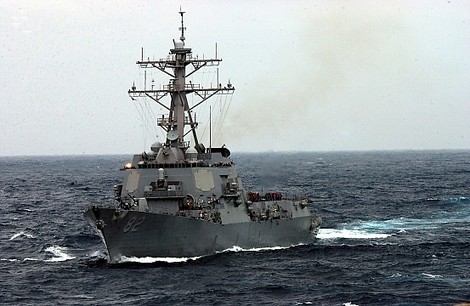Your podcast discovery platform
Curious minds select the most fascinating podcasts from around the world. Discover hand-piqd audio recommendations on your favorite topics.

piqer for: Globalization and politics Global finds
I am an Australian freelance journalist focussing on conflicts, politics, and warzones around the world. I have been working as a journalist for over 5 years, having reported from Australia, Germany, China, Egypt, Palestine, and Ukraine. I am especially interested in the way that new technologies are being used in conflict zones in unexpected and often disturbing ways. During my time working as a journalist, I also co-founded open-source war reporting site Conflict News.
How The South China Sea Could Heat Up Again In 2017
The South China Sea is one of the world's most serious geopolitical flashpoints. At least six individual countries claim parts of the sea, with many of the claims overlapping. As a result, there is intense competition between these countries over the few habitable islands, and there are long-running legal battles as to the status of the territorial claims.
The rise of China over the last few decades has only made this situation worse. The bulk of China is located far from the South China Sea, yet through a dubious maritime claim known as the 'nine-dash line', China claims sovereignty over the vast majority of the sea. Unsurprisingly, its neighbours by and large oppose this.
But now China is creating facts on the ground to enforce its claims, building vast artificial islands on previously marginal reefs. These islands are used as military bases, with runways, radar systems and anti-aircraft missiles. They are an attempt by China to show that its military can dominate the South China Sea, and it therefore should be considered its de facto ruler.
Within this environment, the US has had to tread carefully. It wants to oppose these developments by China, while at the same time not provoke China into a full-blown confrontation.
This article by Ankit Panda looks at the previous administration's policies and actions in the South China Sea and contrasts it with the more hawkish and anti-China Trump administration. The author contends that the US will likely pursue an increased number of so-called 'freedom-of-navigation operations' in the area, which in turn will likely ratchet up tensions with China.
This article is important as it details yet another of the serious geopolitical changes happening in the world since the election of Trump. Some old confrontations are ending, while others such those with as Iran and China are starting anew.
